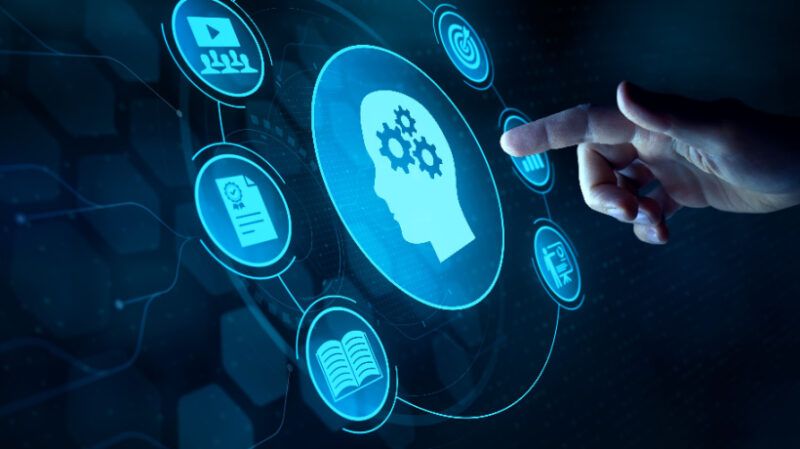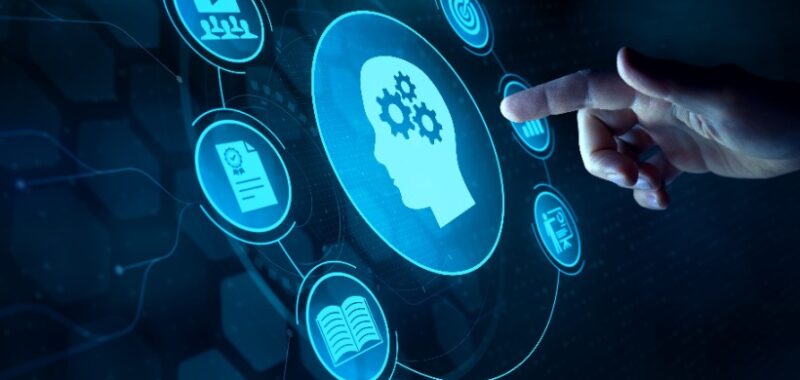
The Future Of Corporate Training With AI
The landscape of corporate training has undergone significant transformations over the past few decades. The introduction of the Internet disrupted traditional in-person training, paving the way for eLearning platforms that offer consistent, scalable, and flexible training solutions to a geographically dispersed workforce. As we stand on the brink of another revolution, Artificial Intelligence (AI) is not just poised to disrupt the field further but to revolutionize it. AI has the potential to replace static eLearning modules with dynamic, personalized training experiences, opening up a world of possibilities. This article explores how the Internet changed corporate training and how AI is set to redefine it once again.
The Internet Revolution: From In-Person Training To eLearning
The Rise Of eLearning
Before the Internet, corporate training primarily involved in-person sessions conducted by trainers at specific locations. While effective in terms of engagement and interaction, this approach was limited by logistical constraints and high costs associated with travel and venue arrangements. The advent of the Internet revolutionized this model by introducing eLearning, which allowed organizations to deliver training to employees anytime and anywhere.
eLearning platforms provided several advantages:
- Scalability
The efficiency of eLearning was evident as training could be deployed to thousands of employees simultaneously without needing physical presence, saving time and resources. - Consistency
Standardized training materials ensured that all employees received the same information, reducing knowledge and skill level variability. - Flexibility
Employees could complete training at their own pace and at times that fit their schedules, improving accessibility and convenience.
These benefits led to the widespread adoption of eLearning across various industries. For example, many companies have integrated digital and blended learning initiatives, incorporating advanced technologies such as AI, VR, AR, and 3D animation into their training programs.
The Next Disruption: AI In Corporate Training
Dynamic And Personalized Learning
As effective as eLearning has been, its static nature often limits it. Traditional eLearning modules are pre-designed and offer little room for adaptation based on individual learner needs. AI promises to overcome these limitations by providing dynamic and personalized learning experiences.
AI-driven training systems can analyze learner data to tailor content in real time, ensuring that each employee receives training that is most relevant to their role, skill level, and learning style. Key features of AI in training include:
- Adaptive learning paths
AI algorithms can customize learning paths based on the learner’s progress, strengths, and weaknesses. For instance, if an employee struggles with a particular concept, the AI can provide additional resources or alternative explanations until mastery is achieved. - Interactive and engaging content
AI can create interactive simulations and scenarios that mimic real-world challenges, enhancing learner engagement and retention. Technologies such as VR and AR can also create immersive training environments. - Continuous improvement
AI systems can continually assess the effectiveness of training modules and update content based on learner feedback and performance data. This ensures that the training remains current and relevant.
Case Studies And Applications
Organizations are already beginning to explore AI’s potential in training. For instance, AI-driven platforms are used to enhance Learning Management Systems (LMSs) by providing thousands of users with a more personalized and efficient learning experience. This integration has improved User Experience and resulted in significant cost reductions and better reporting capabilities.
Moreover, AI’s ability to provide real-time feedback and support can significantly improve learning outcomes. Employees can receive instant feedback on their performance, identify areas for improvement, and access additional resources as needed. This level of personalization was not possible with earlier eLearning models.
Conclusion
The transition from in-person training to eLearning marked a significant milestone in corporate training, offering unprecedented scalability, consistency, and flexibility. However, the static nature of traditional eLearning platforms limits their effectiveness in addressing individual learner needs. Integrating AI into training programs represents the next evolution, enabling dynamic, personalized, and engaging learning experiences.
As AI advances, its impact on corporate training will only grow. It will provide organizations with powerful tools to enhance employee development and performance. Embracing AI-driven training solutions will be crucial for organizations looking to stay competitive in an increasingly digital and fast-paced world.

